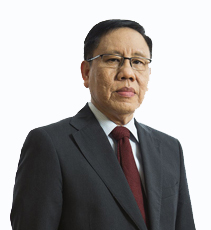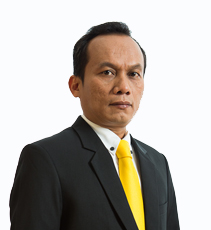Facts at a Glance
The Chairman, who is the head of the agency, is selected among the Commissioners by a majority vote at a Commission Meeting. The current Commissioners appointed Dr. Kurnia Toha as the Chairman for 2.5 years from May 2018 to November 2020.
Only Commissioners are politically appointed.
The 2018 budget is around IDR 138 billion (about USD 9.25 million). Additional budget from the utilisation of the collected penalties is not included.
Around 335 as of June 2018.
The Commissioners report to the President and the Parliament.
The Commission is the sole institution enforcing the competition law in Indonesia.
No, they can’t. Any party who disagrees with the KPPU’s decisions may file an objection to the District Court.
Decision is made based on the Commissioners’ judgement and discretion. It may come from any reasonable consideration, including a non-competition aim.
The enforcement priorities in the next five years are as follows: (i) Monitoring the public interest in the sectors of food, health, education, housing, digital economy and automotive; (ii) Supporting national economic efficiency in the sectors of logistic, transportation, and ICT; (iii) Assisting the development of the finance and banking sector, and also the energy and natural resource sector, to be sound and resilient; (iv) Supervising partnerships as stated in the Law Number 20 Year 2008 in the industries of food and beverages, retail, and MSME to ensure they are aligned with the framework of equal business opportunity.
Administrative.
The KPPU can pursue companies with economic activities in Indonesia (like sales or branches or affiliation). Companies without such activities in Indonesia cannot be pursued by law. To date, we have imposed penalties on foreign companies based outside of Indonesia for anti-competitive violation.
We do not operate any immunity and leniency programme. However, in making their decision, the Commissioners may consider the cooperative behaviour of the parties and reduce their penalties.
In Indonesia, cartel is not a criminal offence.
The KPPU can impose penalties on an individual if he is the sole participant of the violation (they represent themselves). When an individual acts to represent a company, then the penalties will go to the company. The latest case involved an individual who acted as a procurement consultant in a bid-rigging case.
The District Court hears appeals against the agency’s decisions, whereas the Supreme Court of the Republic of Indonesia hears appeals against the District Court’s decisions. In 2017, there were 12 appeals at the District Court, where the KPPU won the majority (66.7%). The KPPU also won 70% of the appeals at the Supreme Court.
We do not have a separate economics team. However, an economist is included and involved in each task force of case investigation.
The Indonesian competition law applies mandatory post-merger notification with a defined threshold of merger and acquisition for joint assets exceeding IDR 2.5 trillion (about USD 168 million) or joint sales of IDR 5 trillion (about USD 335 million). A specific and higher threshold is applied to merger and acquisition between banks (IDR 20 trillion or about USD 1.34 billion). Pre-merger notification is voluntary and follows a similar threshold.
No, we have not. The mandatory post-merger notification regime poses higher risks to businesses as their transaction can be dismantled.
Yes. The most recent case was a condition applied to a merger in PVC commodity when a foreign-based company was acquired by an Indonesian company. The acquisition has proved to increase market concentration and the company might be able to limit competition in the market.
The law is being amended by the Parliament and the amendments are expected to be endorsed in 2018.

